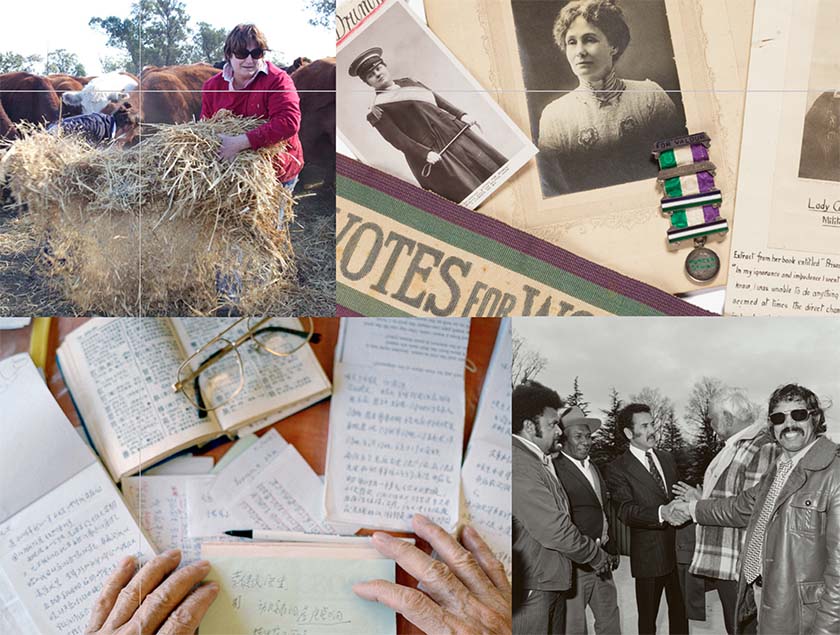Collecting Strategy
Mission
We collect today what will be important tomorrow, to connect Australians to this nation's past, present and future.

Purpose
The National Library of Australia has an ongoing role to comprehensively collect and preserve Australian documentary heritage in a sustainable way. We will continue to build a collection that represents our shared histories and the experience of contemporary Australia for current and future generations.
We collect materials that reflect the lives and experiences of Australia’s diverse people, places and events. We do this in accordance with the National Library Act 1960, the Copyright Act 1968, Australia's Cultural Policy (REVIVE), and the National Library’s Indigenous Cultural and Intellectual Property (ICIP) Protocol.
We initiate direct collecting actions, collect through targeted partnerships, and share these materials through infrastructure that connects collections across Australia.
Context
Over recent decades, the rapid changes in technology have resulted in a significant shift in the publication of new creative works; in the way people produce, store and manage personal archives, and can easily capture people, places and events through digital photography. Together with the proliferation of blogs, websites and social media platforms, content is more transitory - what is created digitally today may be gone tomorrow.
This evolving landscape poses challenges when it comes to the decisions we make in building a national collection, in both traditional and digital formats. We cannot collect everything, so conscious choices need to be made. The Collecting Strategy 2024-2028 sets out the National Library of Australia’s principles and priorities which will guide the National Library’s collecting over the next four-year period, while recognising that we also collect within a broader network of national, state and regional collecting and cultural institutions.
Principles
We aim to collect:
- Material created in Australia, by Australians, about Australia and about selected countries in our region, to share with a wide range of audiences, now and in the future.
- With a clear focus on improving balance and increasing diversity across the collection.
- Across traditional, new and emerging formats, with a preference for digital where available.
- Ethically, legally, transparently, and sustainably.
- Without censorship, prejudice or bias.
- With an awareness of how our collection contributes to the collective story of Australia, held across other collecting and cultural institutions.
Priorities
Legal deposit
As mandated in the Copyright Act 1968, we comprehensively collect Australian published material, with a preference for digital where available.
Australian collecting
Our priorities focus on continuing to improve the balance and increase the diversity of the National Library’s collection, collecting with and for all Australians.
We will focus on collecting documentary material by and about Australians currently under-represented in the collection, to recognise the contribution of all Australians as the holders and creators of culture.
Specifically, we will collect representatively, material that:
- is created by, about or with First Australians in a way that is collaborative, participatory and respectful of communities and knowledge
- increases representation of culturally and linguistically diverse voices, perspectives and experiences
- records active citizenship and representative democracy by documenting individuals and communities who have sought to bring about social and political change
- highlights Australia’s role, contribution and achievements in science and technology
- documents the relationship Australians have with their environment
- conveys stories and experiences of rural, regional and remote communities.
Targeted international collecting
We collect international materials selectively, to inform and enhance Australians’ understanding of our region and place in the world.
We collect selectively from:
- The Pacific: in recognition of our cultural links and regional proximity. The National Library seeks to collect materials relating to Papua New Guinea, the Solomon Islands, Vanuatu, Fiji, New Caledonia and Timor-Leste.
- Indonesia: from and about Indonesia, due to its regional significance.
- China: reflecting the strong bilateral relationship based on economics, trade, community, and cultural links.
- The wider world: acquiring or providing access to overseas materials that offer an understanding of global issues, current events and topics affecting Australia, and from geographic regions where Australia has national, economic and strategic interests.